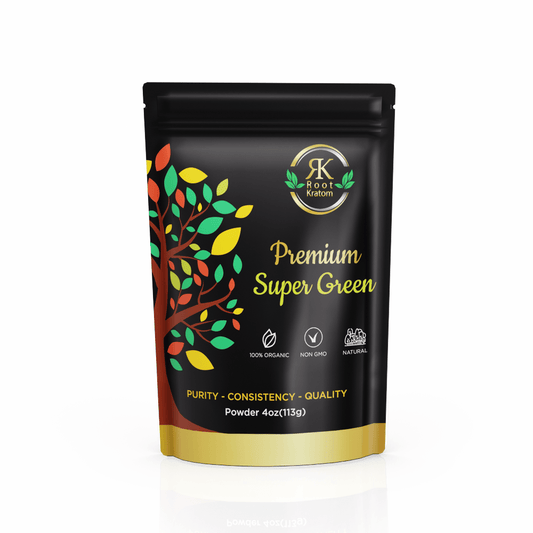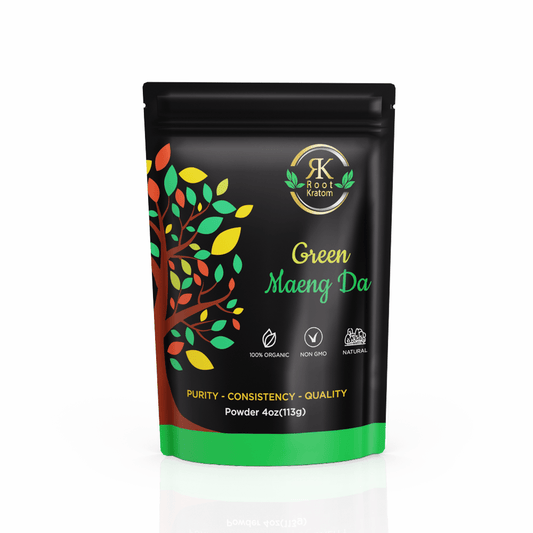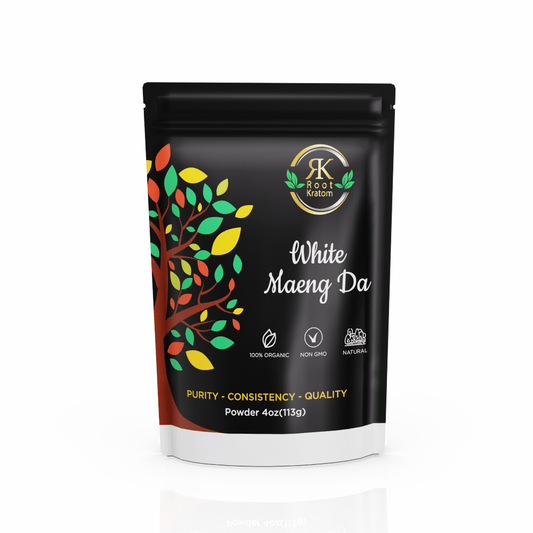
How Kratom Can Support Sleep: What Science Says
Published by Zenhop – Trusted Botanicals. One Place.
Sleep is one of the most vital components of overall well-being. Yet, millions of Americans report experiencing occasional sleeplessness or disrupted sleep cycles. In the ongoing pursuit of natural alternatives for sleep support, many people are exploring botanicals like Kratom (Mitragyna speciosa). While Kratom has gained a reputation for its energy-boosting and focus-enhancing properties, certain strains have also been reported to promote relaxation and restful sleep. But what does science really say?
This guide explores what Kratom is, how its active compounds may affect sleep, what current research says, and which strains users most often associate with nighttime relaxation. This article is for educational purposes only and follows FDA guidelines, avoiding any medical claims.
What Is Kratom?
Kratom is a tropical evergreen tree native to Southeast Asia. Traditionally used in countries like Thailand and Indonesia, its leaves have been consumed for centuries as part of daily rituals. Kratom contains active alkaloids such as mitragynine and 7-hydroxymitragynine that interact with receptors in the brain.
These compounds bind to opioid receptors and may influence mood, relaxation, and focus. The effects vary widely depending on the strain and dose, and some users report Kratom helps them unwind at the end of the day.
How Kratom Interacts with the Body
Kratom’s primary alkaloids influence the body’s opioid and adrenergic receptors. Unlike synthetic opioids, Kratom binds only partially, which is why many researchers view its effects as milder. However, these interactions can still impact sensations of relaxation or stimulation depending on dosage and strain type.
- Low doses: Users often report stimulating or energizing effects.
- Moderate to high doses: Some individuals say they experience sedative or calming sensations.
The alkaloid mitragynine is known to act on the adrenergic system, which is linked to alertness and stress regulation. When taken in the evening or before rest, certain Kratom strains may help the body transition from active to relaxed states.
What Science Says About Kratom and Sleep
- A 2017 study in the Journal of Drug and Alcohol Dependence noted that Kratom users reported improved mood and reduced stress, two major factors influencing sleep quality.
- In a 2020 survey published in Drug and Alcohol Review, 66% of users who took Kratom in the evening reported experiencing better sleep.
- Animal studies also suggest certain alkaloids in Kratom may have sedative-like properties, though more human research is needed.
It’s important to note that Kratom is not FDA-approved for treating insomnia or sleep disorders. Zenhop does not claim its products cure or treat any condition.
Best Kratom Strains for Relaxation and Sleep Support
1. Red Vein Bali
- Muscle relaxation
- Ease of tension
- Improved ability to unwind
2. Red Borneo
- Calm mood
- Stress reduction
- Relaxed mental state
3. Red Maeng Da
- Relief from physical tension
- Support for mood balance
- Nighttime tranquility
Insert Image: Side-by-side comparison chart showing Red strains and their typical nighttime uses.
Kratom Serving Guidelines for Evening Use
- Beginners: 1 to 2 grams
- Intermediate users: 2 to 4 grams
Timing: Take Kratom 1 to 2 hours before intended bedtime. Avoid combining it with alcohol, caffeine, or prescription sedatives.
Insert Image: Kratom tea with a teaspoon and gram scale in the background.
Is Kratom Safe for Sleep Support?
Kratom should be used responsibly. It is not intended for minors, pregnant or nursing individuals, or people on certain medications. Always consult with a healthcare professional before starting any botanical supplement.
Zenhop ensures that all Kratom products are:
- Third-party lab tested
- Sourced from ethical, sustainable growers
- Labeled with batch traceability and COAs
Tips to Improve Sleep Naturally (Alongside Kratom)
- Maintain a consistent bedtime
- Limit screen time before bed
- Try deep-breathing exercises or gentle yoga
- Avoid heavy meals and caffeine in the evening
Insert Image: Flat lay of sleep hygiene tools: lavender oil, herbal tea, journal, sleep mask.
Conclusion: A Natural Tool for Restful Nights
While more scientific research is needed, anecdotal and early observational reports suggest that certain Kratom strains may support relaxation and a restful state when used responsibly. At Zenhop, we believe in empowering our customers with honest, transparent education so they can make informed choices.
For those exploring natural solutions for occasional sleeplessness, Kratom may offer a helpful option. Always start slowly, pay attention to your body, and use Kratom as one part of a broader wellness routine.
FAQs About Kratom and Sleep
Q: Can kratom replace sleeping pills?
A: Some users find it helpful, but it’s not FDA-approved. Always consult a doctor before switching.
Q: What’s the best way to take kratom for sleep?
A: Tea or capsules taken 30-60 minutes before bed work well.
Q: Can kratom cause insomnia?
A: In low doses, it can be stimulating. Stick with Red Vein strains at moderate-high doses for sleep.
👉 Explore Zenhop’s collection of premium Red Vein Kratom strains today and take your first step toward better nights, naturally.




